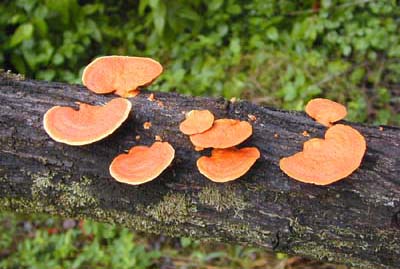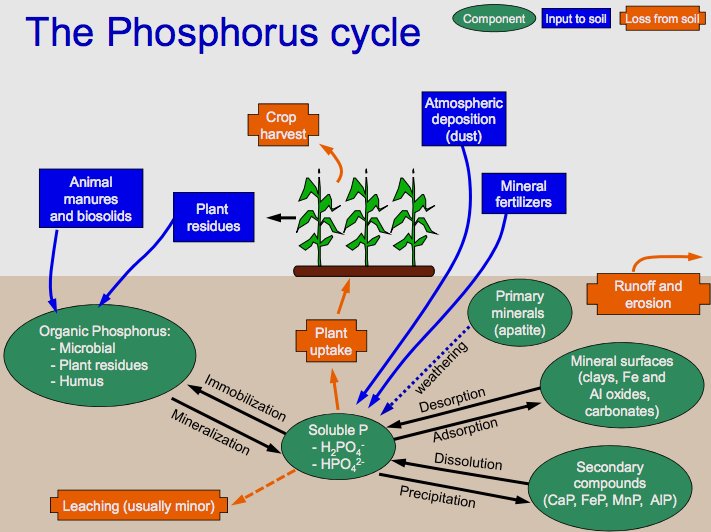
What are Fungi?
What are Mycorrhizal fungi?
What is important about Mycorrhizae?
What is Phosphate and Phosphorus?
 |
Why Study Mycorrhizal fungi and Phosphate?
Introduction
| Home | Our method | Sample Results | Troubleshooting | Acknowledgements | Contact Us | References |
 |
|
|
What are Fungi? |
|
| Fungi are living organisms that are members of the eukaryotic organism group. | |
What are Mycorrhizal fungi? |
|
|
They are a type of fungi that form symbiotic relationships, called
Mycorrhizae, with the majority of terrestrial plants. Most plants rely
on Mycorrhizae for nutrients and moisture. There are two types of
Mycorrhizae, they are ectomycorrhizae (as shown in figure 1) and endomycorrhizae
(as shown in figure 2). The
Ectomycorrhizal fungi form a sheath around the root tip of the plant.
The Endomycorrhizal fungi is confined to the cells of the root system. |
|
|
What is important about Mycorrhizae? |
|
| Mycorrhizae boost phosphate, nitrogen, water, and other nutrient intake for the host plants which is incredibly beneficial to the environment. | |
What is Phosphate and Phosphorus? |
|
Phosphate is the form of
Phosphorus (PO4-3)
that is usable by plants. Phosphorus is a chemical element that is a vital nutrient for plants.
Phosphorus moves through rocks, water, soil, and sediments. Rain and
weathering cause rocks to release phosphate and other minerals, this
phosphorus is distributed in soils and water. Plants take in the
inorganic phosphate from the soil.
|
|
Why Study Mycorrhizal fungi and Phosphate? |
|